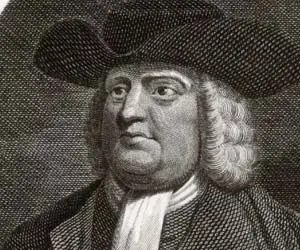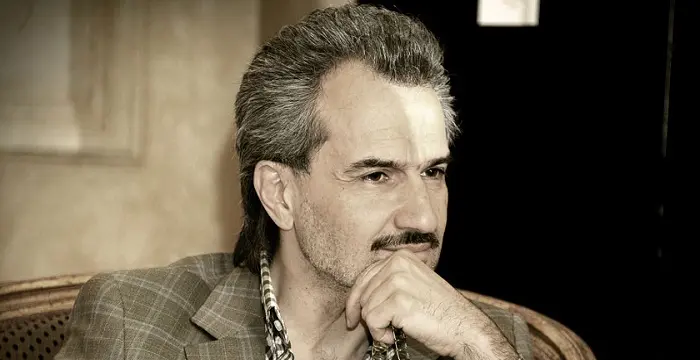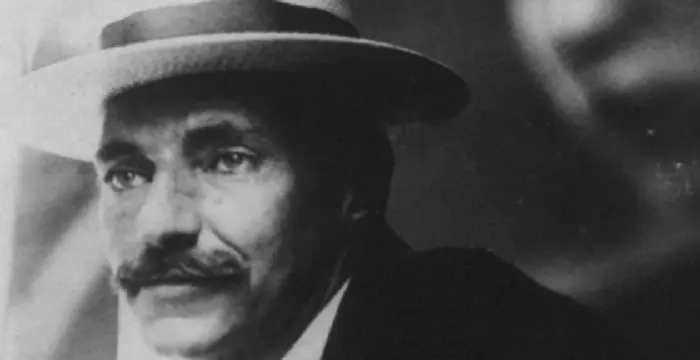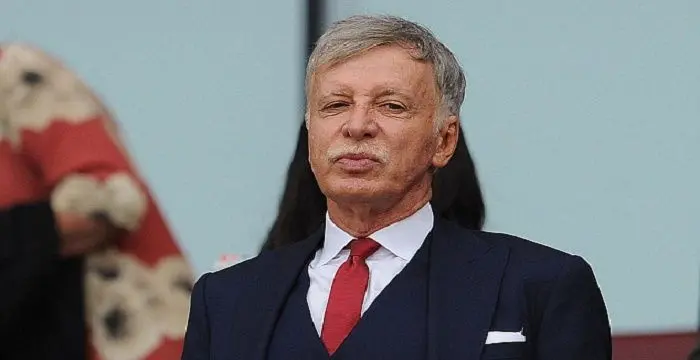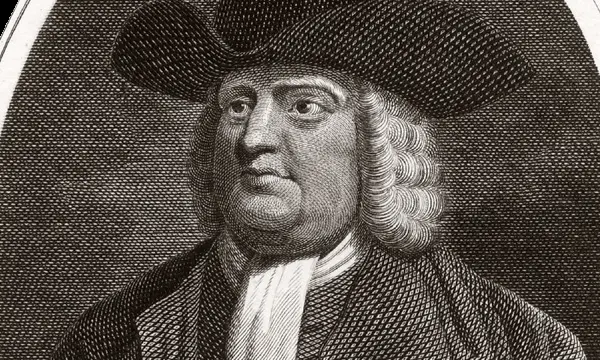
William Penn - Founder of the Province of Pennsylvania, Life Achievements and Family
William Penn's Personal Details
William Penn was an entrepreneur and philosopher who founded the Province of Pennsylvania
| Information | Detail |
|---|---|
| Birthday | October 14, 1644 |
| Died on | July 30, 1718 |
| Nationality | British |
| Famous | Oxford University, Real Estate Entrepreneurs, Intellectuals & Academics, Philosophers, Theologians, Founder of the Province of Pennsylvania |
| Spouses | Gulielma Maria Springett, Hannah Callowhill |
| Childrens | John Penn, Richard Penn Sr., Thomas Penn, William Penn Jr. |
| Universities |
|
| Notable Alumnis |
|
| Founder / Co-Founder |
|
| Birth Place | London, United Kingdom |
| Religion | Quaker |
| Gender | Male |
| Father | Admiral Sir William Penn |
| Mother | Margaret Jasper |
| Sun Sign | Libra |
| Born in | London, United Kingdom |
| Famous as | Founder of the Province of Pennsylvania |
| Died at Age | 73 |
William Penn's photo
Who is William Penn?
William Penn was an entrepreneur and philosopher who founded the Province of Pennsylvania and helped plan the city of Philadelphia. He was born into a noble family; one with high social esteem and abundant wealth. Though raised according to Anglican beliefs, he turned away from its conventions at the age of 22 and became a member of the Religious Society of Friends or ‘Quakers’, the new cult founded by George Fox. The new religious sect abstained from the path of rituals and ordeals and refused to obey any man-made religious organizations. King Charles II owed a sum of £16,000 to Admiral Penn, the father of William Penn. In lieu of the sum, William Penn was granted land in the colony of England that constitutes present day Delaware, New Jersey, and Pennsylvania. When the Charter of Pennsylvania was signed, it officially declared Penn as the owner of the province. Penn was a true democrat and he respected the feelings of the Native Americans and after obtaining legal claims from them, he formed a state of his own. He followed a new democratic system that gave religious freedom and other basic rights that laid the basis for the formation of the constitution of the United States of America.
// Famous Intellectuals & Academics
Bertil Gotthard Ohlin
Bertil Gotthard Ohlin was a famous Swedish economist. This biography profiles his childhood, family life & achievements.
Emily Greene Balch
Emily Greene Balch was an American economist, sociologist and pacifist who won the 1946 Nobel Peace Prize. This biography of Emily Greene Balch provides detailed information about her childhood, life, achievements, works & timeline.
Martin Buber
One of the greatest philosophers to have ever walked on earth, Martin Buber contributions to philosophy is a long-standing one. Explore all about his profile, childhood, life and timeline here.
Childhood & Early Life
William Penn was born on October 14, 1644, to English Admiral, Sir William Penn and Margaret Jasper, the daughter of a rich Dutch merchant.
He studied at Chigwell School and in 1656 he entered a private school on Tower Street, London. While he lived in Ireland, he was educated by private tutors.
In 1660, he enrolled at Christ Church, Oxford as a scholar and became well-versed in history and theology. He became acquainted with the Society of Friends or Quakers and was later expelled from the University as a result of supporting the group’s activities.
He was then privately tutored by Moses Amyrault, a renowned French scholar and a member of the Reformed church.
In the autumn of 1664, he studied for a year at the Huguenot Academy and later traveled to France and Italy.
Career
In 1665, he decided to practice law at Lincoln's Inn, Chancery Lane, London and the following year, he began his career a lawyer in Ireland.
He was sent to control a rebellion at Carrickfergus in 1667, after which he returned to London. The following year, while he was at Ireland, he became a Quaker and was arrested for attending a Quaker meeting at Cork. After his release, he returned to England.
He met George Fox, the founder of Quakers in 1669 and suffered the wrath of his father who vowed to disown him. He was arrested and imprisoned at the Tower of London for writing the pamphlet ‘The Sandy Foundation Shaken’.
After his release, he moved to Ireland and practiced law. With the influence of powerful friends including Lord Arran, he was successful in freeing the Quakers, who were imprisoned in Ireland.
In 1670, Penn’s father died and Penn inherited a sum of £1500 annually from his father’s estate.
In 1681, King Charles II signed the charter that stated Penn’s ownership of Pennsylvania in return for £16000, which he owed to Penn's father. Penn struck a cordial relationship with the Native Americans and paid them some amount to legally own the land.
He took charge of Pennsylvania as its Governor in 1682. Two years later, he returned to England to attend to legal disputes concerned with his properties and also because of the political unrest in England.
Philip Ford, his manager in charge of his properties in England, tricked him into transferring the ownership of Pennsylvania to him and signed him to pay rent for the same.
Penn became bankrupt and was unable to pay the rent. When Philip died in 1702, his wife Bridget ordered for Penn to be sentenced to debtor’s prison; however Penn was handed over his province when the case opened for a trial.
He was financially burdened by the lifestyle of his sons and in 1712 he suffered from a series of strokes that eventually led to dementia.
Major Works
In 1668, William Penn authored a tract, ‘The Sandy Foundation Shaken’, which was a follow-up of his first pamphlet, ‘Truth Exalted’. This pamphlet criticized all religions except ‘Quakerism’ in harshly worded statements, which resulted in his imprisonment in the ‘Tower of London’. This is considered one of his major works because of his bold opinions and his theories on why he believed ‘Quakerism’ should prevail over all other religious institutions.
With his affluence and political power, he was able to establish a province to promote his Quaker belief in one of the colonies of England named Pennsylvania.
He implemented a “Frame of Government”, a democratic system offering freedom of religion, separation of powers, and fair trials by a panel of jury that became instrumental in the formation of the Constitution of the United States.
Personal Life & Legacy
He met Gulielma Maria Posthuma Springett, the step-daughter of Isaac Pennington, a Buckinghamshire Quaker in 1669 and married her in 1672 at King's Farm, Chorley Wood. The couple had three sons and five daughters.
In 1694 Gulielma Springett died and in 1696 at the age of 52, he married Hannah Callowhill, the 25-year old daughter of a Quaker Bristol merchant. He had eight children by this marriage.
He died on July 13, 1718, the age of 73, leaving the province of Pennsylvania under the possession of his second wife and her sons.
Trivia
This Quaker who had established a province in America used to wear a wig until his college days to cover the hair loss resulting from a small pox attack he suffered while he was very young.
// Famous Philosophers
Martin Buber
One of the greatest philosophers to have ever walked on earth, Martin Buber contributions to philosophy is a long-standing one. Explore all about his profile, childhood, life and timeline here.
Lao Tzu (Laozi)
Lao Tzu was a legendary Chinese philosopher who wrote the important “Daodejing”. This biography profiles his childhood, life, career, achievements and timeline.
Alan Watts
Alan Watts was a famous British philosopher known for his Zen teachings and interpretations of Eastern philosophy. Read more about this great philosopher in the following article.
William Penn biography timelines
- // 14th Oct 1644William Penn was born on October 14, 1644, to English Admiral, Sir William Penn and Margaret Jasper, the daughter of a rich Dutch merchant.
- // 1656He studied at Chigwell School and in 1656 he entered a private school on Tower Street, London. While he lived in Ireland, he was educated by private tutors.
- // 1660In 1660, he enrolled at Christ Church, Oxford as a scholar and became well-versed in history and theology. He became acquainted with the Society of Friends or Quakers and was later expelled from the University as a result of supporting the group’s activities.
- // 1664In the autumn of 1664, he studied for a year at the Huguenot Academy and later traveled to France and Italy.
- // 1665In 1665, he decided to practice law at Lincoln's Inn, Chancery Lane, London and the following year, he began his career a lawyer in Ireland.
- // 1667He was sent to control a rebellion at Carrickfergus in 1667, after which he returned to London. The following year, while he was at Ireland, he became a Quaker and was arrested for attending a Quaker meeting at Cork. After his release, he returned to England.
- // 1668In 1668, William Penn authored a tract, ‘The Sandy Foundation Shaken’, which was a follow-up of his first pamphlet, ‘Truth Exalted’. This pamphlet criticized all religions except ‘Quakerism’ in harshly worded statements, which resulted in his imprisonment in the ‘Tower of London’. This is considered one of his major works because of his bold opinions and his theories on why he believed ‘Quakerism’ should prevail over all other religious institutions.
- // 1669He met George Fox, the founder of Quakers in 1669 and suffered the wrath of his father who vowed to disown him. He was arrested and imprisoned at the Tower of London for writing the pamphlet ‘The Sandy Foundation Shaken’.
- // 1669 To 1672He met Gulielma Maria Posthuma Springett, the step-daughter of Isaac Pennington, a Buckinghamshire Quaker in 1669 and married her in 1672 at King's Farm, Chorley Wood. The couple had three sons and five daughters.
- // 1670In 1670, Penn’s father died and Penn inherited a sum of £1500 annually from his father’s estate.
- // 1681In 1681, King Charles II signed the charter that stated Penn’s ownership of Pennsylvania in return for £16000, which he owed to Penn's father. Penn struck a cordial relationship with the Native Americans and paid them some amount to legally own the land.
- // 1682He took charge of Pennsylvania as its Governor in 1682. Two years later, he returned to England to attend to legal disputes concerned with his properties and also because of the political unrest in England.
- // 1694In 1694 Gulielma Springett died and in 1696 at the age of 52, he married Hannah Callowhill, the 25-year old daughter of a Quaker Bristol merchant. He had eight children by this marriage.
- // 1702Penn became bankrupt and was unable to pay the rent. When Philip died in 1702, his wife Bridget ordered for Penn to be sentenced to debtor’s prison; however Penn was handed over his province when the case opened for a trial.
- // 1712He was financially burdened by the lifestyle of his sons and in 1712 he suffered from a series of strokes that eventually led to dementia.
- // 13th Jul 1718He died on July 13, 1718, the age of 73, leaving the province of Pennsylvania under the possession of his second wife and her sons.
// Famous Real Estate Entrepreneurs
Al-Waleed bin Talal
Al Waleed Bin Talal is the owner of ‘Kingdom Holding Company’ and is one of the richest individuals in the world. This biography provides detailed information about his childhood, career, profile & timeline
Oleg Deripaska
Oleg Vladimirovich Deripaska is a well-known Russian business tycoon and philanthropist. This biography profiles his childhood, family, personal life, business career, achievements, and gives some fun facts.
Edoardo Mapelli Mozzi
Edoardo Mapelli Mozzi is a British property developer. Check out this biography to know about his childhood, family, personal life, relationships, etc.
Robert Kiyosaki
Robert Kiyosaki is an entrepreneur, investor, author and motivational speaker. This biography provides detailed information about his life, childhood, career and timeline.
John Jacob Astor IV
John Jacob Astor IV was an American businessman, real estate builder, investor, inventor, writer, lieutenant colonel in the Spanish–American War, and a prominent member of the Astor family.
Stan Kroenke
Stan Kroenke is an American tycoon who owns Kroenke Sports & Entertainment. Check out this biography to know about his childhood, family life, achievements and fun facts about him.
William Penn's FAQ
What is William Penn birthday?
William Penn was born at 1644-10-14
When was William Penn died?
William Penn was died at 1718-07-30
Where was William Penn died?
William Penn was died in Berkshire
Which age was William Penn died?
William Penn was died at age 73
Where is William Penn's birth place?
William Penn was born in London, United Kingdom
What is William Penn nationalities?
William Penn's nationalities is British
Who is William Penn spouses?
William Penn's spouses is Gulielma Maria Springett, Hannah Callowhill
Who is William Penn childrens?
William Penn's childrens is John Penn, Richard Penn Sr., Thomas Penn, William Penn Jr.
What was William Penn universities?
William Penn studied at Oxford University, Chigwell School, University of Oxford, Christ Church College, Protestant Academy
What was William Penn notable alumnis?
William Penn's notable alumnis is Oxford University
Which company or organization was founded by William Penn?
William Penn was the founder/co-founder of Province of Pennsylvania
What is William Penn's religion?
William Penn's religion is Quaker
Who is William Penn's father?
William Penn's father is Admiral Sir William Penn
Who is William Penn's mother?
William Penn's mother is Margaret Jasper
What is William Penn's sun sign?
William Penn is Libra
How famous is William Penn?
William Penn is famouse as Founder of the Province of Pennsylvania
